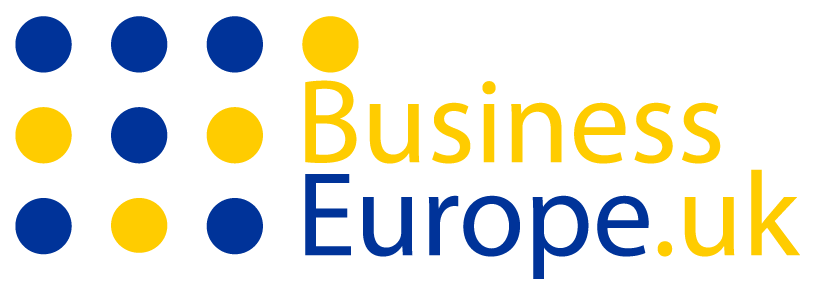The University of Roma Tor Vergata is leading the way in blockchain technology. It’s in the heart of Rome and hosts events like the Blockchain Innovation Day. This event shows how blockchain can be used in many areas, not just money matters.
It works with big names like EY Europe to push forward research and development. These events are great for learning and meeting new people. They help both experts and students grow.
Ideathons are also part of the mix, sparking new ideas to solve real-world problems. This shows how important schools are in moving Mediterranean technology forward.
Key Takeaways
- The University of Roma Tor Vergata is a key player in European blockchain innovation.
- Blockchain Innovation Day demonstrates blockchain’s vast potential beyond finance.
- Partnerships with industry leaders like EY Europe boost research and development.
- Events provide invaluable learning and networking opportunities.
- Ideathons promote creative solutions to local business challenges.
Introduction to Blockchain Technology
Blockchain technology is a complex system that changes how we store and manage information. It’s different from traditional databases, which are often in one place. Blockchain uses decentralised technology, spreading data across many nodes. This makes it secure and transparent.
At its heart, blockchain is like an immutable ledger. Each block has transaction data, a timestamp, and a special code linking it to the previous block. This makes it hard to change any information. It ensures data is safe and trustworthy, reducing the chance of corruption.
Blockchain’s immutable ledger brings many benefits. It makes validation transparent and doesn’t need middlemen, cutting costs and speeding up processes. With no single point of failure, it’s more secure against attacks.
Blockchain is useful in many areas like finance, healthcare, and supply chain management. Companies and governments see its potential to innovate, improve efficiency, and build trust online.
In short, blockchain is changing how we handle data for the better. It’s moving us towards more secure, open, and efficient data management. As it grows, its immutable ledger will be key in shaping our digital future.
History and Development of Blockchain in Europe
Europe has made great strides in blockchain technology. From the start to now, there have been key milestones. These show the deep history of blockchain in Europe.
The Early Days
The early days of blockchain in Europe were marked by important partnerships. A key alliance was between Tor Vergata University and EY Europe. This partnership was a big step for Europe in blockchain technology. It helped lay the groundwork for future growth.
Recent Advancements
Recently, Europe has seen a lot of progress in blockchain. Many research labs and new partnerships have been set up. Events like Blockchain Innovation Day have shown Europe’s ongoing growth in this area.
| Milestone | Year | Significance |
|---|---|---|
| Tor Vergata University and EY Europe Alliance | 2016 | Laid the groundwork for blockchain research and development in Europe |
| Establishment of Research Labs | 2018 | Enhanced focus on blockchain innovation and integration with IoT |
| Blockchain Innovation Day | 2020 | Showcased Europe’s ongoing technological progression and commitment to blockchain advancement |
Role of European Universities in Blockchain Innovation

European universities are leading the way in blockchain research and development. The University of Roma Tor Vergata and the Politecnico di Milano are at the forefront. They are making big strides in this field.
University of Roma Tor Vergata
The University of Roma Tor Vergata is a key player in blockchain innovation. It works with big companies to explore new uses for blockchain. This has led to improvements in data security and transaction efficiency across different sectors.
Politecnico di Milano
Politecnico di Milano is also making a big impact in blockchain research. It has a Blockchain and Distributed Ledger Observatory that keeps track of the latest developments. The university is not just training experts but also hosting big conferences that help advance blockchain research.
| Institution | Key Initiatives | Impact |
|---|---|---|
| University of Roma Tor Vergata | Interdisciplinary research, industry collaboration | Innovative blockchain applications |
| Politecnico di Milano | Blockchain and Distributed Ledger Observatory, conferences | Enhancement of blockchain research and education |
Key Events Shaping Blockchain in Europe
Several key events have greatly influenced the blockchain scene in Europe. These events offer chances for sharing knowledge, networking, and showing off new blockchain uses. Two events stand out as key in shaping blockchain in Europe.
Blockchain Innovation Day
The Blockchain Innovation Day, held by the University of Roma Tor Vergata, is a major event. It aims to inform people about the newest trends in blockchain, boost innovation, and create a space for sharing ideas. These efforts are vital in pushing forward blockchain progress in Europe, making it a top event for blockchain in Europe.
Annual Conferences
The annual conference by Politecnico di Milano is another key part of Europe’s blockchain scene. It draws in thousands of business experts, researchers, and leaders. Topics include the latest in blockchain technology and its future, making the Politecnico di Milano blockchain summit a must-attend event. These conferences highlight blockchain’s growing role in Europe and set the stage for future advancements.
| Event | Location | Key Highlights |
|---|---|---|
| Blockchain Innovation Day | University of Roma Tor Vergata | Industry trends, Idea exchange, Innovation |
| Annual Blockchain Conference | Politecnico di Milano | Business networking, Industry progress, Future directions |
The European Blockchain Ecosystem
The European blockchain scene has grown into a lively mix of new startups, bold research projects, and schools. Each one plays a big part in making a place where blockchain tech can thrive in Europe. This mix shows Europe’s big push into blockchain technology.
Europe’s crypto world is full of new chances and big projects. Startups are popping up everywhere, working in fields like finance, supply chain, and healthcare. They’re changing their industries and adding a lot to Europe’s blockchain scene.
Schools like the University of Roma Tor Vergata and Politecnico di Milano are leading the change. They offer strong blockchain courses to train the next experts. Their research looks into how blockchain can be used in many ways, building a solid base for future growth.
Let’s take a closer look at Europe’s crypto scene and the main players in the blockchain world:
| Component | Description |
|---|---|
| Innovative Startups | Companies driving blockchain solutions across diverse industries, including finance, healthcare, and supply chain management. |
| Research Initiatives | Academic and private sector collaborations investigating new applications and improving existing blockchain frameworks. |
| Educational Institutions | Universities offering comprehensive blockchain programs to cultivate skilled professionals and fuel innovation. |
| Government Support | Policies and regulatory frameworks aimed at fostering a supportive environment for blockchain growth and innovation. |
European Blockchain Startups Leading the Charge

The European blockchain scene is buzzing with new ideas. Several startups are making their mark and pushing tech forward. Mediterraneo Lab 4.0 is a standout for its groundbreaking work and projects.
Mediterraneo Lab 4.0
Mediterraneo Lab 4.0 has changed the game with its innovation. They’ve created web tools like WORKERS BADGE and ONIONCERT. These tools are changing how we check credentials and verify skills. They’re also working on patents and using AI to improve their blockchain tech.
Other Prominent Startups
Other European blockchain startups are also making big moves. They’re adding to the sector’s excitement with their unique solutions. For example, some are working on JOB NFT for skills proof, aiming for a 2024 launch.
These European crypto projects are helping the industry grow and evolve. They’re keeping Europe at the forefront of blockchain technology.
Blockchain Applications in European Industries
Europe is embracing blockchain technology across various sectors. This brings new solutions and improves how things are done. Blockchain offers better security, transparency, and efficiency.
Finance
Blockchain is changing the finance industry in Europe for the better. It makes transactions secure and cuts down on fraud. This is making financial services more trustworthy and reliable.
Blockchain in European finance is also making investors more confident. It helps with rules and regulations too.
Real Estate
Blockchain is making a big difference in real estate. It makes keeping records and transactions clear. This makes buying and selling property easier and safer.
Real estate ledger technology is becoming more popular in Europe. It ensures all deals are safe, permanent, and easy to check.
Fashion and Agri-food
Fashion and agri-food blockchain are changing these sectors. They make it easier to track where things come from. This helps fight counterfeiting in fashion and keeps food safe.
The European market is starting to use these blockchain industry applications more. This keeps standards high and builds trust with consumers.
| Industry | Blockchain Applications | Key Benefits |
|---|---|---|
| Finance | Secure Transactions | Reduced Fraud, Enhanced Trust |
| Real Estate | Ledger Technology | Transparency, Improved Record-keeping |
| Fashion | Product Authentication | Counterfeit Protection, Genuine Goods |
| Agri-food | Supply-chain Management | Traceability, Quality Assurance |
Collaborations and Research Initiatives
European universities and the private sector are driving blockchain technology forward. Their partnerships are key to innovation. For example, Roma Tor Vergata University and EY Europe are working together to create real blockchain solutions.
University and Industry Partnerships
University and industry partnerships are vital in Europe’s blockchain research. The University of Roma Tor Vergata is working with EY Europe. They aim to improve blockchain use in finance and healthcare.
This partnership is focused on solving real-world problems with academic expertise. It shows how universities and companies can work together effectively.
Blockchain and IoT Integration
Projects combining IoT with blockchain are becoming more popular. Europe is leading this effort. These projects aim to make technology smarter and more connected.
They ensure secure data sharing and create new business models. This uses blockchain’s secure nature and IoT devices’ connectivity.
These collaborations highlight the need for teamwork in advancing Europe’s blockchain scene. By combining academic research with industrial know-how, they lay a strong base for future tech growth in the region.
Case Studies of Blockchain Success in Europe

Europe is leading the way in blockchain innovation. It shows the power of blockchain through various projects. These projects highlight the big impact of blockchain in different sectors.
In finance, blockchain is making transactions smoother and more transparent. Companies like SIA and Banca Mediolanum use blockchain to boost security and efficiency. They are success stories in blockchain, showing how it can greatly improve financial systems.
In education, the University of Cagliari is using blockchain to verify academic certificates. This makes sure the documents can’t be altered, protecting academic honesty. These efforts are setting the stage for more use in schools.
The supply chain sector also sees big wins with blockchain. Europe’s agrifood industry is at the forefront. Barilla Group, a top food company, uses blockchain to track its products from farm to table. This builds trust and transparency, making the supply chain more reliable.
| Organisation | Sector | Achievements |
|---|---|---|
| SIA | Finance | Enhanced security and efficiency in transactions |
| University of Cagliari | Education | Implementing blockchain for tamper-proof certificates |
| Barilla Group | Supply Chain | Improved product traceability and consumer trust |
These blockchain success stories show the huge potential of the technology. By looking at these European examples, we see how blockchain is changing things. It gives us a strong base for future innovation.
European Blockchain’s Role in the Circular Economy
Europe is leading the way in using blockchain in the circular economy. This approach aims for a sustainable economy that helps both consumers and businesses. It uses blockchain to make sure resources are used better and waste is cut down.
The bitCashback platform is a great example. It uses European blockchain tech to encourage eco-friendly actions. By rewarding people for choosing sustainable options, it helps reduce carbon emissions. This supports a strong, lasting economic model.
European blockchain experts are working with industries to improve how we manage resources and recycle. These efforts show how European blockchain is helping the country move towards a greener future.
| Platform | Main Focus | Impact |
|---|---|---|
| bitCashback | Incentivising Eco-friendly Behaviours | Promotes Sustainable Practices |
| EcoChain | Resource Management | Enhanced Recycling Processes |
| RecycledTech | Tracking Recycled Goods | Boosts Transparency |
Europe is leading the way by blending blockchain with the circular economy. This creates a future where growth and protecting the environment go together. The journey of using blockchain for a sustainable economy is growing, showing how blockchain can change old economic ways.
The Legal Landscape of Blockchain in Europe
Europe is making big moves in the legal world of blockchain technology. It’s creating detailed rules for how to use blockchain. This includes European blockchain legality, which is all about setting up rules for blockchain activities in the country.
The government has made clear cryptocurrency regulations Europe. These rules help make sure digital currency is safe and open. They aim to build trust among users and investors.
Also, there are special groups working on blockchain compliance Europe. They make sure companies follow the law. This helps reduce risks and keeps blockchain projects honest. Europe is creating a place where blockchain can grow safely and legally.
Challenges and Opportunities for European Blockchain
Europe’s blockchain scene is full of promise and complexity. It faces several challenges and has many opportunities. The main hurdle is the regulatory environment, which is still evolving. This uncertainty can slow down innovation.
Strict rules can make it hard to launch new blockchain solutions. Traditional industries may also be slow to adopt new technology. This makes it harder to move forward.
Despite these hurdles, Europe’s blockchain future is promising. There are many chances for growth in areas like finance, real estate, and supply chain management. Top universities and research centres are deeply into blockchain research, laying a strong base for future progress.
With a focus on blockchain technology, Europe is set to boost its global competitiveness.
The following comparison shows the challenges and chances for blockchain in Europe:
| Challenges | Opportunities |
|---|---|
| Regulatory uncertainty | Advanced research and development |
| Adoption resistance in traditional sectors | Growing interest from industries |
| Compliance costs | Support from educational institutions |
Europe is taking steps to seize blockchain development chances, moving into a digital economy. The growth of blockchain tech is opening up new possibilities. It’s making Europe a key player in the global market.
Future Prospects for Blockchain in the Mediterranean
The future of blockchain in the Mediterranean, especially in Europe, is looking bright. It’s becoming a key player in the tech scene. With new tech and growth in different areas, blockchain is making a mark.
Potential Growth Areas
In Europe, blockchain is growing fast in fields like finance, healthcare, and logistics. Small and medium enterprises are really taking to it. They use blockchain to make things clearer and more efficient.
Technological Innovations
Europe is leading the way with blockchain tech breakthroughs. There’s a big push to link blockchain with AI and IoT. This aims to make processes smarter, safer, and more automated. Europe is becoming a key player in blockchain innovation in the Mediterranean.
The outlook for blockchain in the Mediterranean is strong. It’s set for significant growth and ongoing innovation.
The Cultural Impact of Blockchain in Europe
Blockchain’s impact in Europe goes beyond just the economy. It’s becoming part of the culture. This change is seen in many areas, affecting both people and businesses.
Consumers in Europe are changing how they shop. Blockchain makes things more transparent, so people know more about what they buy. This leads to better choices and supports ethical and sustainable living.
Businesses are also changing. They use blockchain to be more open and honest. This builds trust with customers. It’s big in finance and supply chain, where being clear about where things come from is key.
Blockchain is giving power to local communities too. It helps them make decisions together. This makes society more fair and democratic. Blockchain is changing how Europe works together.
Blockchain is deeply affecting European culture. It’s not just about tech; it’s about changing society for the better. It’s making Europe more open, honest, and democratic.
International Collaborations with European Blockchain Firms

Europe is now a key player in blockchain innovation, working with others around the world. These partnerships help push blockchain technology forward. They make European firms key players in the blockchain world.
Partnerships with Global Tech Players
European blockchain companies team up with big names like IBM, Microsoft, and Oracle. These partnerships help drive innovation and create new blockchain solutions. They let European companies use advanced tech and gain new insights, boosting their projects.
European Union Initiatives
Europe is also part of many EU blockchain projects. These projects aim to make blockchain use standardised across Europe. By working together, European firms help shape blockchain policies in Europe.
These efforts show Europe’s growing role in the blockchain world. Working together, European companies and EU projects boost innovation and tech progress worldwide.
Final Thoughts on European Blockchain Innovation
The growth of blockchain in Europe is truly impressive. It combines deep cultural roots with cutting-edge tech. Universities like the University of Roma Tor Vergata and Politecnico di Milano are leading the charge. They work closely with blockchain startups, making Europe a key player worldwide.
Europe’s blockchain scene is thriving, with sectors like finance, real estate, and fashion seeing its benefits. Events like Blockchain Innovation Day and conferences spread knowledge and spark innovation. These events celebrate past wins and pave the way for future growth.
In wrapping up, Europe’s blockchain journey is one of constant innovation and adaptation. It’s embracing blockchain for a better economy, with strong laws and global partnerships. As Europe blends tradition with modern tech, blockchain is set to bring new levels of efficiency and growth.






